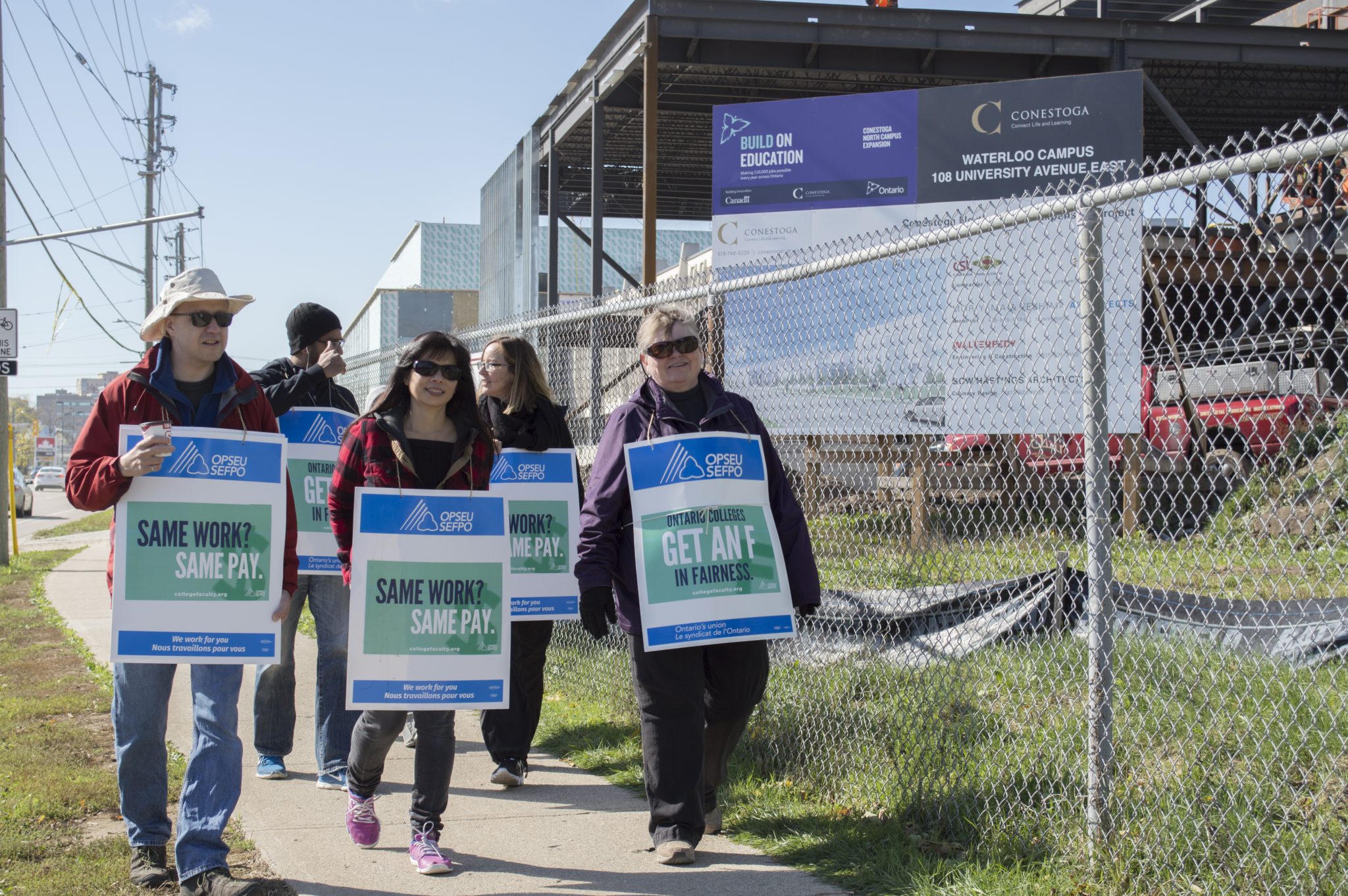UPDATED: Faculty from 24 Ontario public colleges go on strike


Faculty at 24 Ontario public colleges have been on strike as of this past Monday, Oct. 16.
The strike was confirmed on Sunday, Oct. 15 at 9:28 p.m. after failed deliberations for a new contract.
The strike will affect over 500,000 students in Ontario, including students at Conestoga College in Kitchener-Waterloo. The union represents approximately 12,000 faculty members.
Apparently, the union presented a new offer to the College Employer Council (CEC) this past Saturday night.
The union’s final offer included improvements in job security, a stronger voice for faculty in regards to academic decision making and a call to match the number of faculty members on contract.
However, the CEC claimed that the demands could not be met as it would add more than 250 million in annual costs, jeopardize the quality of college programs and eliminate almost a thousand of contract faculty jobs.
“The union has some really unaffordable demands that remain on the table,” Peter McKeracher, academic director at CEC, said.
“I hope … that our students can understand that what we’re doing will impact them in a positive way, not a negative way. Because when we get back into the classroom, they will all finish their semester and we will make it as stress-less as we can,” she said.
“They’ve got a 250 million dollar set of demands on the table, that’s the impediment.”
However, Lana-Lee Hardacre, local Ontario Public Service Employees Union (OPSEU) representative, explained that the CEC refused to accept some of the union’s demands that were essentially cost-free.
“For instance, just agreeing to look at the Counsellor Class Definition that’s outdated and updating it,” Hardacre said.
Another focal point for the union in their deliberations is allowing faculty to have a stronger voice in regards to academic decision making.
“We could have someone who’s never taught in the classroom but they make decisions on what textbooks we use and whether we should use multiple choice or essay,” Hardacre said.
“It costs money, but at the same time, we wouldn’t then be delivering quality education to our students, which is the issue that we’re concerned about. It’s not workload we’re concerned about; we’re concerned about the fact that we have no control.”
As for the students who are affected by the strike, both parties iterated that they are confident all students will be able to resume their semester within the next few weeks.
A statement provided by the CEC spokesperson, Sonia Del Missier, noted the inconvenience which students will face as a result of the strike:
“This strike is completely unnecessary and unfair to hundreds of thousands of students. We should have had a deal based on our final offer. It is comparable to, or better than, recent public sector settlements with teachers, college support staff, hospital professionals and Ontario public servants, most of which were negotiated by OPSEU.”
Although deliberations are currently at a halt, both parties are working with a mediator who will indicate when he believes the parties are ready to return to the bargaining table.
“We have a good offer … we think it would be appropriate for the union to take this to their membership for a vote. It’s a good deal and we’re hoping that will form a basis of a settlement,” McKeracher said.
Hardacre reiterated that she hopes that students can understand the importance of what the union is fighting for.
“I hope … that our students can understand that what we’re doing will impact them in a positive way, not a negative way. Because when we get back into the classroom, they will all finish their semester and we will make it as stress-less as we can,” she said.


